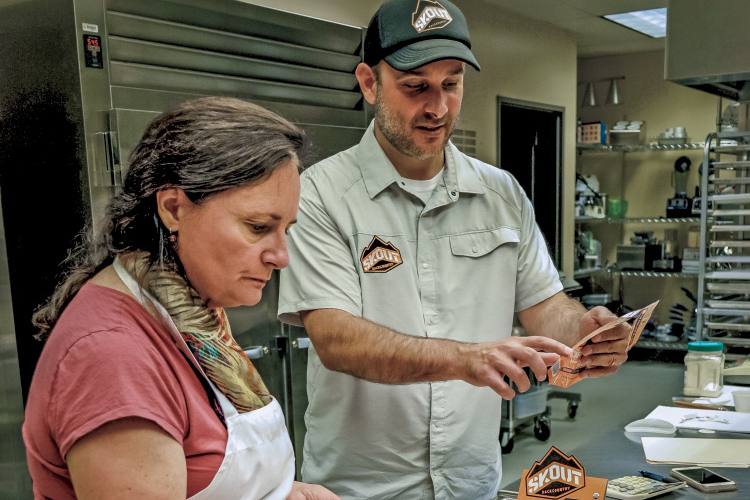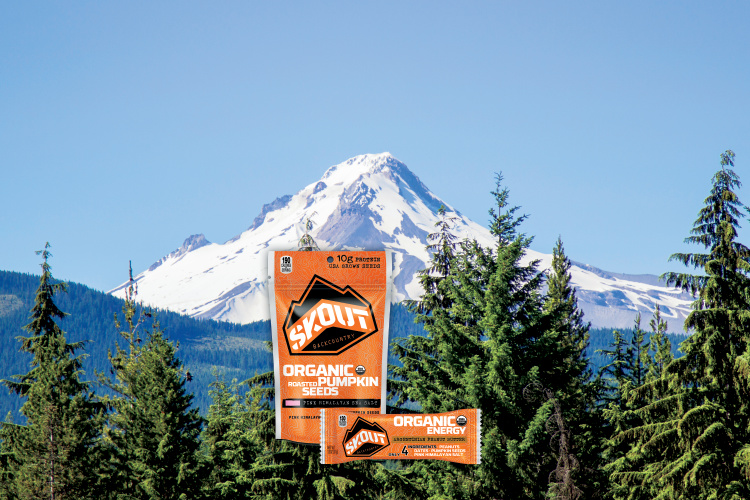Home > Oregon > Oregon Crops & Livestock > Oregon Entrepreneurs Excel in Food Business
Oregon Entrepreneurs Excel in Food Business
 Jason Pastega grew up in the midst of his parents’ Blue Heron French Cheese Company in Tillamook. When he decided to start a business of his own, it didn’t take long for Pastega to discover how much he needed to learn about what it takes to own a food company.
Jason Pastega grew up in the midst of his parents’ Blue Heron French Cheese Company in Tillamook. When he decided to start a business of his own, it didn’t take long for Pastega to discover how much he needed to learn about what it takes to own a food company.
Thankfully, he found a program designed to address his questions right in his own backyard. Pastega is one of hundreds of entrepreneurs to make their way through a food business incubation program offered through the Portland-based Food Innovation Center (FIC), which is jointly run by Oregon State University and the Oregon Department of Agriculture.
“I was super excited to learn that this resource was available,” Pastega says. One of 13 OSU branch experiment stations, the center focuses primarily on food safety and food science, but also connects food entrepreneurs with retailers and other buyers, says Sarah Masoni, product and process development manager for the FIC.
Masoni says she frequently hosts food scientists and educators from outside the region, who travel to Portland to tour the center.
“What we are doing has put Oregon at the forefront of food innovation,” Masoni says, “and people are coming here from all over the United States and the world to learn how we are changing our food economy.”
Pastega was like many FIC clients before he first approached the center. He had an idea for a food product, but didn’t know how to get it onto store shelves.
“Starting out, for the first six months, I didn’t have any help, and I was just playing around with these recipes in my home kitchen, and making all my friends and family try the food,” Pastega says. “I perfected the recipes as much as I could, but I didn’t really know how the recipe stacked up as far as shelf life, and how the flavor would change over time. So that is when I reached out to Sarah.”
 That was nine years ago. Today, Pastega’s Skout Backcountry organic snack bars can be found on Amazon and in local health food and outdoor stores. The company, which sources most of its ingredients from local farmers, has eight full-time employees, and could add more if efforts to gain national distribution succeed.
That was nine years ago. Today, Pastega’s Skout Backcountry organic snack bars can be found on Amazon and in local health food and outdoor stores. The company, which sources most of its ingredients from local farmers, has eight full-time employees, and could add more if efforts to gain national distribution succeed.
And Pastega continues to turn to the FIC for advice, particularly when working on new products.
The FIC draws between 250 and 500 clients annually. “We are service oriented, and that was the main goal of the FIC to begin with: to create a place where people could come to create value in a food product,” Mason says. “We are helping people commercialize food, and we have had some really good success stories.”
Some food entrepreneurs work with the center just long enough to turn their idea into a product that is safe, flavorful, artfully packaged and ready for distribution. Others stay with the program for several years.
“Some companies started out very small, and now they are in a 10,000-square-foot manufacturing facility, and I still work with them,” Masoni says.
Included in the many food companies that have worked with the FIC are some of Oregon’s most successful. Umpqua Dairy, which has operated in Oregon since 1931, recently partnered with the center on developing a new product that remains proprietary until it goes public.
“They were very helpful,” said Marty Weaver, director of sales and marketing for the dairy. “They took the product from idea through inception and did a nice job with it. I was very pleased.”



